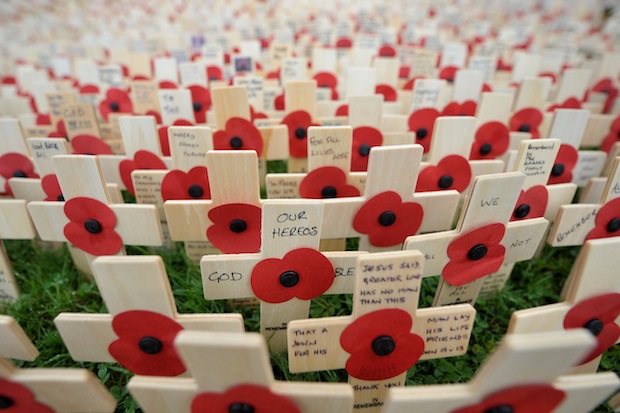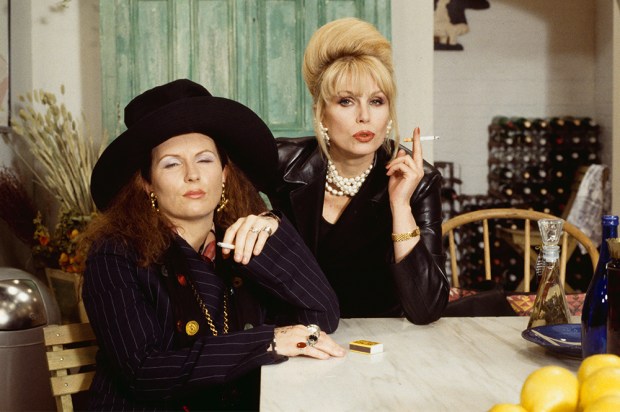A year or so ago I was asked to sit on a committee that advises the government on how to commemorate the first world war. It consists of about 30 dauntingly well-qualified people (former heads of the army and of Nato, historians, ex-defence secretaries), so there seems little for me to contribute at meetings. But it is interesting to be on the government side of something and see how it deals with public expectation and the press. In the summer there was a report in a British paper that the Germans had sent over their commemoration team and asked if, instead of dwelling on the conflict, the British could make 2014-18 a chance to talk up the European Union. I emailed the Department of Culture to ask if this could be right. Not a word of it was; but they sent me a link to a truthful account of the visit in a German paper.
It is all surprisingly enjoyable. Maria Miller chairs at the speed of light; Andrew Murrison MP, from the Ministry of Defence, does the heavy lifting and overseas liaison. If you like, you can go into the Department of Culture for further personal briefings on how things are progressing. There, the team is already into the detail for the main events on 4 August 2014 in Glasgow, Mons and London — and very promising they look, touch wood, marrying the solemn with the modest. It is a lot of work, but the government has to take a lead since it is ultimately responsible for the activities of so many organisations, including the Heritage Lottery Fund, the Imperial War Museum and the Commonwealth War Graves Commission. Its main job, however, is to enable smaller groups, including local schools, to remember in exactly the way they want. Nor is it trying to tell people what ‘really’ happened — or who bears the blame.
That, in my view, is how it should be. Political failure hastened the catastrophe; politicians can’t now tell us what to do about it. In 1914, the old Europe committed suicide. It dismembered itself, lost three empires and killed ten million men. After 1918 it was no longer possible to view the centuries since the Renaissance as being a gradual journey, with whatever setbacks, towards a greater human civilisation. That hope was lost for ever. But the Armistice did come. The slaughter did end — and people had to continue living. I think 2018 will be the hardest year to manage. How to strike a note of hope and relief amid a recognition that the world was for ever changed… That is going to take some careful thought — and is still a work in progress.
We all have our television foibles and mine is for cookery programmes. I find them extremely relaxing to watch at 7.30, drink in hand. Not that I will ever cook any of these things myself. Even Tom Kerridge’s pub food requires you to have a bunch of fresh seaweed for the mayonnaise. Masterchef, meanwhile, is hypnotic. They seem to be aiming at some sort of time-warp cuisine, to do with a ‘fine-dining experience’ — where every item of cooked food is pushed and prodded on the plate with bare hands, then circled by a nasty brown skid-mark. But I still find it weirdly uplifting when a man who’s never been much good at anything is congratulated by the judges on a ‘lovely plate of food’.
When I first came to live in Notting Hill about 30 years ago it was a vaguely Bohemian area with a large Caribbean population. People lived in rooms and flats. Now the houses are mostly single dwellings again. The West Indians have gone, and people in financial services have moved in. But why? The average incomer clearly thinks his expensive house is all wrong from the start. He shuts off the parking bay while he excavates the ground below. In some cases he has to pay his neighbours to live in hotels while he knocks his stucco-fronted 19th-century house into what he wanted in the first place: a sort of Miami consumer showroom. In this destructive frenzy he is abetted by the local council. The Royal Borough is utterly supine about planning. I have asked councillors why they allow the area to be undermined by people who clearly have no feeling for it and they reply that there is nothing they can do. Central government forbids them to forbid it. More puzzling than the feebleness of the council is the buyers’ self-delusion. If they want pools and gyms and cinemas where they can talk about foreign holidays and tax avoidance, they should head out past the M25. That, surely, is what the stockbroker belt is for.
My favourite Christmas game is best played late at night on the 25th when you have had a lot to drink. Somebody goes out of the room. Then everyone else waits for a minute and tries to remember who it was.
Got something to add? Join the discussion and comment below.
Get 10 issues for just $10
Subscribe to The Spectator Australia today for the next 10 magazine issues, plus full online access, for just $10.
You might disagree with half of it, but you’ll enjoy reading all of it. Try your first month for free, then just $2 a week for the remainder of your first year.














Comments
Don't miss out
Join the conversation with other Spectator Australia readers. Subscribe to leave a comment.
SUBSCRIBEAlready a subscriber? Log in